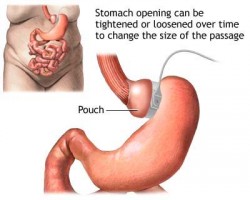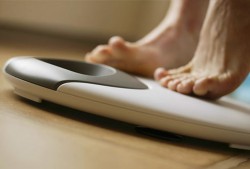How to Help Your Toddler Lose Weight
You should not attempt to help your toddler lose weight unless directed to do so by a medical professional. Many toddlers grow at different rates and may appear slightly pudgy for a couple of years. If your child is seriously overweight and a health professional has recommended some weight loss for your toddler, follow these steps to help your toddler lose weight safely.
Steps
Method 1 Feed Your Toddler a Balanced Diet
Your toddler’s diet is an important part of maintaining a healthy weight. If your child has an imbalanced or non nutritional diet, it is your responsibility as a parent to introduce proper quantities and varieties of healthful foods. Eating a balanced, nutritious diet of approximately 1000-1400 calories per day should help your child achieve a healthy weight when combined with sufficient physical activity.
- 1 Focus on fruits and vegetables. Most toddlers will eat a variety of fruits, so try incorporating them into the daily diet as breakfast and snacks. Use vegetables in every lunch and dinner, and set a good example for your child by eating vegetables yourself as well.
- 2 Feed your toddler lean protein. Children should have regular sources of lean protein, such as yogurt, fish, chicken, and some whole grains. Work within your child’s preferences but make it clear that protein is an important part of mealtime.
-
3
Avoid fast food and junk food. Toddlers need fresh, healthful food to achieve and maintain an appropriate weight.
- If your child often eats take-out or packaged foods packed with fat, salt, sugar, and other non-nutritive ingredients, swap them out for carrot sticks, applesauce, strawberry slices, string cheese, and Cheerios.
- 4 Keep portions under control. Toddlers need about half the calories of adults, so size portions accordingly. Try dividing the plate into segments: 1/2 vegetables and/or fruits, 1/4 whole grains, and 1/4 lean protein.
-
5
Eliminate sugary drinks. Many toddlers love to drink fruit juices, but these are often loaded with calories and limited in nutritional value.
- If your child drinks a lot of fruit juice (or any other sweetened drink), swap it out for milk or water. Juice, soda, and other sweetened drinks can add hundreds of calories to your toddler’s diet each day.
- Do not give your toddler drinks that serve as dietary supplements, such as PediaSure. These drinks are formulated for children with difficulty gaining weight or with restrictive diets. If your child eats well and is overweight, avoid high-calorie toddler drinks of this nature.
Method 2 Help Your Toddler Exercise Everyday
Just as with adults, sufficient physical activity is essential to achieving and maintaining a healthy weight for your toddler. Incorporating exercise and active play throughout the day can help your child quickly and safely lose weight while also forming habits for a healthy lifestyle of physical activity.
-
1
Have your toddler play at least 90 minutes each day. Don’t put your toddler on a treadmill, but encourage your child to play actively for over an hour every single day.
- Have your toddler play soccer, swim with you, dance to music at home, chase his or her siblings (or you), or run around with other children at the playground.
-
2
Exercise with your child. If your toddler is hesitant to engage in physical activity, show him or her how much fun it can be by participating in games and exercise with your toddler.
- Participating in physical activities is also good for your health, and it makes it clear to your child that exercise is not a punishment.
-
3
Make sure your child’s daycare incorporates physical activity. Ask whether the pre-school or daycare center where your child spends the bulk of his or her time incorporates significant sessions of physical activity into the daily routine.
- All childcare centers should build in at least one hour of high-energy physical play into each day’s schedule.
Method 3 Work with a Pediatrician or Dietitian
If you have been advised by a health professional that your toddler needs to lose weight, work in close cooperation with him or her to help your toddler achieve a healthy weight. Once your child is on a healthy diet and is exercising regularly, discuss the changes with a pediatrician or dietitian and continue to tailor your child’s diet and activity to his or her needs.
-
1
Get your child weighed and measured regularly. If your child is growing quickly, he or she may quickly return to a healthy weight-for-height ratio.
- Once your child is back within healthy parameters, your pediatrician or dietitian may recommend slight alterations to diet or exercise routines to maintain a healthy weight.
-
2
Ask for an evaluation for other health concerns. If your child is not losing weight after following a healthy diet and exercise routine, your child’s weight may be an indication of a more serious medical condition, such as a thyroid imbalance.
- Have your toddler evaluated by a health professional on a regular basis during the weight loss endeavor.
- 3 Ask questions about diet and exercise. Pediatricians and dietitians often have tons of tips for parents trying to incorporate healthy foods into the diet of a picky eater, or for making physical activity appealing to otherwise sedentary children. Follow their advice if you hit a roadblock with your child.
-
6 Ways Your Healthy Diet Is Your Diet Making You Gain Weight
If youre trying to slim down, youve probably amassed a menu full of ca
-
How to Lose 10 Pounds - A Few Great Steps and Ideas
Often people are not really overweight but instead are just look
-
Weight Loss Tips To Help You Lose 10 Pounds By Easter
If losing weight is your goal, there are a few necessary weight loss
-
Ways To Manage The Loss Of Hair And Prevent It
In school, you had a mullet, which is party in back but business
-
Acai Berry: The Best Way To Reduce Your Weight
The Acai berry has been confirmed to help with weight loss in many wa
-
Weight Loss Tip #34 – Running backwards can help you lose weight
- DON'T MISS
- 8 reasons why mushrooms are good for health
- Tips For A Runner, How To Shed Pounds Fast
- Slim Down Easier By Setting Time-bound Goals
- Lose Fat By Dieting-facts-benefits And Drawbacks
- The Weird Reason You Overeat
- Dangers of loss surgery
- Can Twitter Make You Thinner?
- Leave Your Struggle With Weight In The Past: Tips For Success
- Teenage Weight Loss - 3 Important Tips
- Weight Loss Tip #78 – Switch to high-intensity workouts




